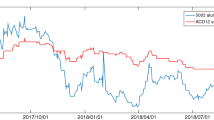Abstract
This paper considers an assembly system where a firm produces a single product which is assembled using two types of components (component 1 and component 2). The components are provided by individual suppliers (supplier 1 and supplier 2). We assume that the firm makes different procurement contracts with supplier 1 and supplier 2. To supplier 1, the firm specifies the maximum inventory level of component 1 and makes a commitment to purchase the component as long as its inventory level is below this target level. To supplier 2, the firm has the option of purchasing or rejecting component 2 at each instant supplier 2 provides it. Formulating our model as a Markov decision problem, we identify a component 2 purchasing policy which maximizes the firm’s profits subject to the costs of rejecting component 1, holding component 2, and purchasing component 2. We also investigate how the changes in the sales price and cost parameters affect the optimal purchasing policy. Finally, we present numerical study for the optimal performance evaluation.
Similar content being viewed by others
References
Bertsekas DP (1987) Dynamic programming: deterministic and stochastic models. Prentice-Hall, Englewood Cliffs, USA
Bassok Y, Anupindi R (1997) Analysis of supply contracts with minimum total minimum commitments. IIE Trans 29:373–381
Chen F, Krass D (2001) Analysis of supply contracts with minimum total order quantity commitments and non-stationary demands. Eur J Oper Res 131:309–323
Cohen M, Agrawal N (1999) An anaytical comparison of long and short contracts. IIE Trans 31:783–796
Fujiwara O, Sedarage D (1997) An optimal (Q,r) policy for a multicomponent assembly system under stochastic component procurement lead times. Eur J Oper Res 100:550–556
Gerchak Y, Yunzeng W, Yano CA (1994) Lot sizing in assembly systems with random component yields. IIE Trans 26:19–24
Glasserman P, Yao D (1994) Monotone optimal control of permutable GSMPs. Math Oper Res 19:449–476
Gurnani H, Akella R, Lehoczky J (1996) Optimal order policies in assembly systems with random demand and supply delivery. IIE Trans 28:865–878
Gurnani H, Akella R, Lehoczky J (2000) Supply managment in assembly systems with random yield and random demand. IIE Trans 32:701–714
Ha AY (1997) Optimal dynamic scheduling policy for a make-to-stock production system. Oper Res 45:42–53
Kim E, Van Oyen MP (1998) Beyond the cμ rule: dynamic scheduling of a two-class loss queue. Math Methods Oper Res 48:17–36
Kim E, Van Oyen MP (2000) Finite-capacity multi-class production scheduling with set-up times. IIE Trans 32:807–818
Kumar A (1989) Component inventory costs in an assembly problem with uncertain supplier lead-times. IIE Trans 21:112–121
Li C, Kouvelis P (1999) Flexible and risk-sharing supply contracts under proce uncertainty. Manag Sci 45:1378–1398
Lippman S (1975) Applying a new device in the optimization of exponential queueing systems. Oper Res 23:687–710
Porteus E (1982) Conditions for characterizing the structure of optimal strategies in infinite-horizon dynamic programs. J Optim Theory Appl 36:419–432
Powell S, Pyke D (1998) Buffering unbalanced assembly systems. IIE Trans 30:55–65
Serel D, Dada M, Moskowitz H (2001) Sourcing decisions with capacity reservation contracts. Eur J Oper Res 131:635–648
Suk JB, Cassandras CG (1991) Optimal scheduling of two competing queues with blocking. IEEE Trans Automat Control 36:1086–1091
Topkis DM (1978) Minimizing a submodular function on a lattice. Oper Res 26:305–321
Veatch M, Wein L (1992) Monotonic control of queueing networks. Queueing Syst: Theory and Appl 12:391–408
Yano CA (1987) Stochastic leadtimes in two-level assembly systems. IIE Trans 19:371–378
Yao DD (1988) Optimal run quantities for an assembly system with random yields. IIE Trans 20:399–403
Author information
Authors and Affiliations
Corresponding author
Additional information
This material is based upon work supported by the Korea Science and Engineering Foundation (KOSEF) through the Northeast Asia e-Logistics Research Center at University of Incheon.
Rights and permissions
About this article
Cite this article
Kim, E., Lee, K. & Kang, SH. Optimal purchasing policy in a two-component assembly system with different purchasing contracts for each component. Math Meth Oper Res 63, 301–327 (2006). https://doi.org/10.1007/s00186-005-0004-x
Received:
Published:
Issue Date:
DOI: https://doi.org/10.1007/s00186-005-0004-x




